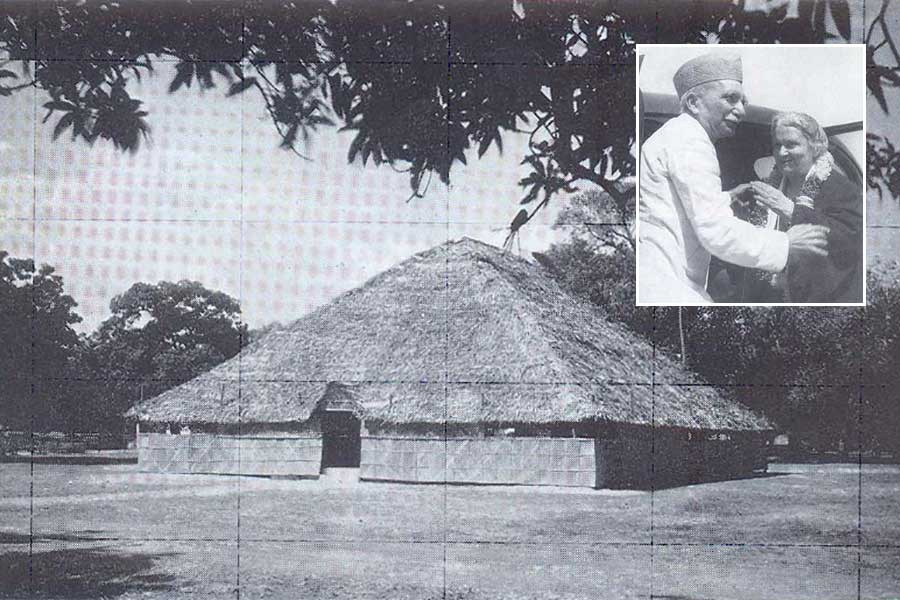What is Montessori ?
The Montessori method of education is a child-centred educational approach that was developed by Italian physician and educator Maria Montessori in the early 20th century. It is based on the idea that children have a natural desire to learn and can absorb knowledge through self-directed, hands-on exploration and discovery.
India Chapter
Prior to Maria Montessori's arrival in India, Rabindranath Tagore and Mahatma Gandhi were aware of her pedagogical method. By 1929, Tagore had founded many "Tagore-Montessori" schools in India (including at Shantiniketan), and Indian interest in Montessori education was strongly represented at the International Congress in 1929.
Montessori's work in India began with her arrival there in 1939. Montessori education was established in India in the form of preschools and schools that are now affiliated with the Association Montessori Internationale. Maria Montessori was responsible for the creation of a teacher training centre in the neighbourhood of Adyar, Madras (present-day Chennai). Her work continued on in India through her designated representatives, Albert M. Joosten and S. R. Swamy, before spreading further.
Montessori education was introduced to India in the early 1900s and has since gained popularity as an alternative approach to traditional education.
There are currently over 1,000 Montessori schools in India, and the number is growing. These schools follow the philosophy and methods developed by Italian physician and educator Maria Montessori, which emphasize self-directed learning and the development of a child's independence and creativity.
Montessori schools in India often follow the same curriculum as traditional schools, but with a focus on hands-on, experiential learning. Classrooms are typically equipped with Montessori materials, which are designed to encourage children to explore and discover concepts for themselves.
The Montessori philosophy values the individuality of each child and believes in tailoring education to the needs of the individual. As a result, Montessori classrooms can have a wide range of ages, as children are allowed to progress at their own pace.
From the government desk
In recent years, the Indian government has shown an interest in incorporating elements of the Montessori philosophy into the country's traditional education system. In 2018, the government launched a pilot program to introduce Montessori methods in government-run schools in select states.
Delhi government is setting up state-of-the-art "Montessori Labs" in its schools. In the pilot phase, the first such lab is being readied at Rana Pratap(Sindhi) Sarvodaya Vidyalaya in New Rajinder Nagar to provide a hands-on learning experience to primary school students. Read the full article here
According to a source, the Delhi government has identified around 160 such schools to introduce the Montessori lab for pre-primary students.
Teacher Training
The big question to be asked here is "How are we ensuring quality training for these teachers?". According to the article, Bal Bharti Public School has been roped in to provide training to the teaching and non-teaching staff.
However, is a 1-week workshop for teachers with zero to no experience in Montessori enough to provide quality Montessori learnings at these schools? I don't think so. In my opinion, teachers require constant refresher courses, a hands-on learning method for each material and a quality insight into the Montessori philosophy and how to implement the same in their classes.
Montessori learning solutions
Zinggerr can act as a perfect solution. It has over 160 video presentations for different Montessori materials, which the teachers can use at their will and learn more about the material handling and its use cases. Zinggerr's teacher training platform, fully equipped with analytics and an interactive VR lab can also be used to train these teachers virtually from some of the most respected trainers in the industry.
There are several other options like opting for providing Montessori diploma courses to the teachers, hiring Montessori educators and such.
Overall, Montessori education in India is an increasingly popular alternative to traditional education, with a growing number of schools and government initiatives aimed at promoting this approach. We are on the right track, with some proper solutions implemented at the beginning, we can create truly global, world-class, Montessori-inspired schools in India - the first of its kind.
Let me know what you think about the same?

Comments
Post a Comment